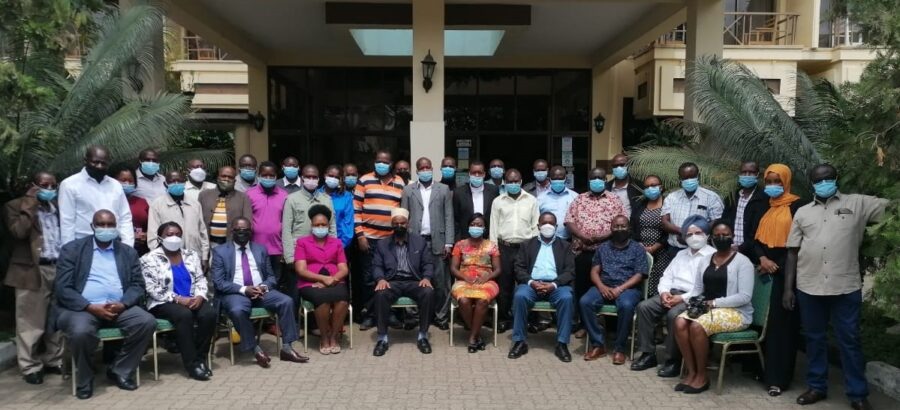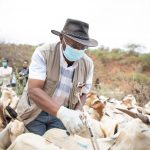Establishment of livestock feed security system in Kenya included the Ministry of Agriculture Livestock and Fisheries (MoLF) as well as other stakeholders in the feed resource sector – private sector, farmers and (agro) pastoralist groups/cooperatives and development partners, as well as research and licensing organizations. Various tools, including Animal Feed Inventory and Balance Sheet (AFBS), Predictive Livestock Early Warning System (PLEWS) tools and the Pictorial Evaluation tools (PET) have been developed.
On 11th – 15th October, the workshop to validate AFBS, Grazing Biomass and Monogastric was officially opened by the Director of Livestock Production, Sate Department of Livestock, MoALF, Bishar Elmi. He reminded participants who met at Bontana Hotel in Nakuru that the high cost of feeds has greatly affected productivity of animals in Kenya. Therefore, the directorate is committed to creating an enabling policy environment for the feed industry to thrive well. The Livestock policy is in place, the feed regulations are in the process of being developed and also a livestock master plan is on course. The Director thanked everyone for participating in the journey from the feed inventory of the 23 ASAL counties and now the 24 non-ASAL counties, and stated that making it a success is a priority for the department. He was grateful to FAO and IGAD for their support. The validation workshop attended by 41 participants (8 females and 33 men) made the following recommendations:
- The concept of feed inventory should be applied at farm level.
- Automation of the feed inventory and feed balance tools is being done.
- Realign the approach used to collect data on agro industrial by-products so as to get data.
- Awareness creation – feed millers and government should enhance interactions to build trust between buyers and sellers for businesses to thrive.
ICPALD expresses appreciation to FAO Resilience team for funding this activity.






